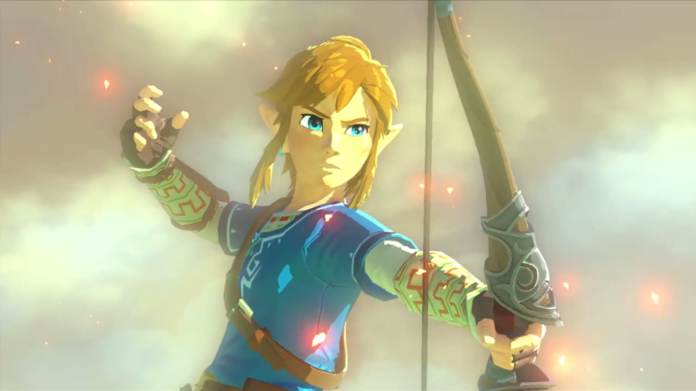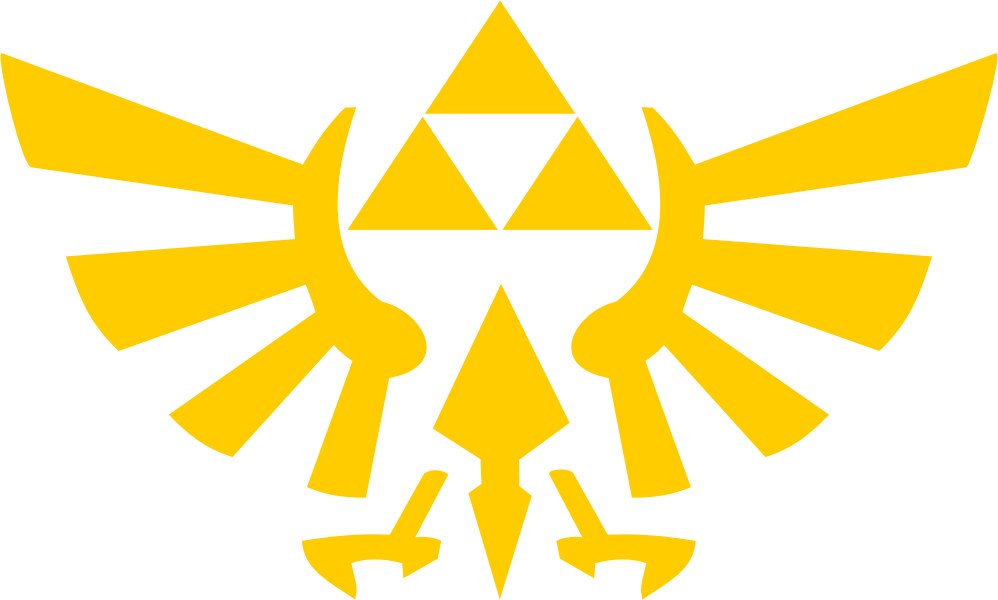This year at E3, Nintendo went all-in on their new Legend of Zelda game. They devoted hours upon hours to showing off gameplay, dissecting mechanics, and generally exploring and commenting on the beautiful world they had created. The hype they generated was immense and undeniable. The game looks innovative, well-designed, and above all, fun.
However, for many fans, the hype train was slowed a bit by the confirmation by series creator Eiji Aonuma that, despite fan speculation, The Legend of Zelda: Breath of the Wild’s Link would be male, not female. When he was asked about this, Aonuma explained that the decision had to do with the makeup of the Triforce — that since Zelda, Link, and Ganon all represent different parts of the Triforce, swapping Link’s gender might mess with the balance in some way. Though he never explains exactly how.
He further explained that the team had considered making a game where Zelda herself would have the lead role, but the idea was nixed early on since Link apparently wouldn’t have much to do if Zelda were doing all the fighting.
Of course, this caused a sizable reaction from the gaming community, from fans disappointed that the new hero of a beloved series would not be female, to fans who are staunchly opposed to a female Link since it would mess with the format of a game series they know and love very dearly.
But as far as I have seen, most of the people arguing against a female Link don’t seem to be aware of why one would be so important in the first place.
Gaming Is (Still) A Men’s Club
Look at your shelf right now, the one where you keep all your video games. What percentage of those games are from major publishers and feature playable female protagonists? If my count is any indication, it’ll be about a tenth of the total, and that’s including games with character creation mechanics.
The truth is that major gaming studios, with a few notable exceptions, are not writing stories that specifically star women, and that is a big problem. They’re either writing stories that star men, or writing stories that can star anybody, and that’s because they are, consciously or unconsciously, writing stories for themselves. As of 2 years ago, women only made up about 22% of the gaming workforce, despite the fact that more women own gaming consoles than men.
Knowing this, it’s not really a surprise that AAA studios generally don’t create games that star non-white, non-male characters, since the studios themselves aren’t generally that diverse. However, for gaming to thrive, and to encourage more people to get into gaming not just as a hobby, but as a career, this needs to change. More stories need to be told that speak to the experience of being a woman, not just pay lip service to it with a generic story and a character creation mechanic.
An Issue Of Representation
As a white male, I can literally point to thousands of games, The Legend of Zelda included, where I can see myself as the protagonist without having to do a bunch of mental acrobatics. Instead of simply playing through somebody else’s story, I get to lose myself in the game and play through the adventure as if it is my own. It’s one of my favorite things about gaming, and is a feeling entirely unique to the format.
And that’s a privilege that non-male (and non-white, non-cisgendered, non-heterosexual, non-binary for that matter) people either don’t have, or have to look a lot harder for. Nintendo could really have blazed a trail here and allowed a gigantic audience to experience the new Legend of Zelda game in a new way by structuring the story around a female hero.
If you think about it, it’d be a perfect fit. According to the Hyrule Historia, the legendary hero, Link, isn’t just one person — it’s more of an idea, or an inheritance. The hero is chosen somehow. There’s no reason in the world of the game that the hero can’t be a woman.
Which is why so many were disappointed when Aonuma made those comments. It sounded like an excuse at the worst, and insensitive to the wishes of fans at best.
And while I do not believe these comments are sexist, the simple truth is that the world is still largely a sexist place. In addition, I don’t believe the lack of a playable female Link is sexist in and of itself, but the fact that a small percentage of major-market games have playable female characters, while women make up about half of the gaming audience is.
Having said all of that, as a male, my privilege dictates that I don’t get to decide what is and what is not sexist towards women. And if you’re a guy too, neither do you.
Shut Up And Listen
It’s important to realize that as a man, I will never have the ability to truly empathize with a woman who is arguing for the inclusion of a female Link since I’ve had the benefit of having so many games that star me (or somebody a lot like me). I’m pretty lucky. I don’t know what it’s like to be treated like an outsider in a fandom, because I’ve been the target market for the majority of the video games that have ever been produced. And I’ve never experienced any real, harmful sexism or prejudice.
Many people who are arguing for the inclusion of a female Link have experienced this, whether it’s the latent sexism that exists in the world today or whether it’s something much more concrete. Dismissing their arguments out of hand with a comment like “But Link’s always been a guy!” is something that is only possible because of privilege.
Instead, listen. If you don’t know what it’s like to be a female gamer, ask. Ask somebody why the inclusion of a female Link would be so important, or what it would mean to them. And listen. Try to understand where they are coming from.
I know. Us gamers love to talk about what we’re passionate about. But too often, when we talk, we silence the voices of others. Be open. And engage in debate. To be clear, I’m not saying that anybody who thinks Link should stay a dude is sexist, but it is ignorant to think that this debate is simply about one video game or one video game company.
In order to grow as a community of gamers, we need to engage with other people’s opinions, and even if we disagree, try to at least understand where they’re coming from. In recent years, the gaming community has become fractured and broken, known more for ugly and hateful acts than inclusivity. The best way to fix that is to truly be more inclusive, from the conversations we have to the stories we tell to the characters we play as.
And that’s the most disappointing thing about all of this. One of the most storied and beloved franchises in gaming history could have pushed gaming forward in a very real way, but they chose not to. The least we can all do in lieu of a female Link is to listen a bit harder to the folks that want one.








Published: Jun 17, 2016 08:53 am